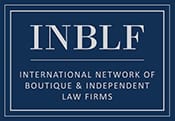Rules are rules and are a lot of work
December, 2013
Eric F. Greenberg | Attorney-at-Law
It’s a lot of work.
When regulatory agencies make new regulations, it’s a lot of work for them to put together their proposal. And while industry and other members of the public get a chance to comment on the proposal, it’s a lot of work for them, too.
They’ve got to read through the proposal, figure out what effect it might have on their business if it were made final, figure out whether they like it or not, and figure out if they want to let the agency know their reactions.
And when Congress passes a big, new law that calls for agencies to make a long list of new regulations, as happened when they passed the FDA Food Safety Modernization Act in 2011, the effect is multiplied. FDA was late issuing some of the regulations called for by the law, and a court ordered them to publish all proposed regulations by November 30, 2013 and all final regulations no later than June 30, 2015.
Of the proposed regulations, the major ones in terms of effects on businesses were probably the ones on the preventive controls program, and, for packagers, the ones about the new Foreign Supplier Verification Program.
The comment period for preventive controls ended in November, but for the FSVP, it was to have ended on November 26. Now FDA has extended it for 60 days.
Extensions are commonly issued when a regulation shows signs of being particularly complex or controversial, and FSVP certainly is that. It would call for food makers to ask for new documentation, or review reports by auditors, or in some cases conduct on-site audits, all to confirm that those who supply them with food they use to make other foods are themselves following adequate procedures.
For packaging makers, though, this proposed regulation squarely presents an important issue. In short, the FSVP program would require US food makers to take steps to confirm that their foreign suppliers are in compliance with laws against adulteration and misbranding. Suppliers of what? you might well ask. Suppliers of “food,” says the law and proposed regulations. “Oh no,” say packaging makers, “that might include me.” And indeed it might, because the legal definition of “food” includes components of food, which includes food contact materials that migrate into food. So non-U.S. suppliers of food packaging might be included among those to whom these regulations apply.
This is not a new thought. In fact whenever new laws or regulations applicable to food crop up, packaging makers can usually be found frantically raising their hands in the back of the room to say, “When you say ‘food’, surely you don’t mean us!” When, for example, the post 9/11 Bioterrorism Act added a new obligation to makers of food that they be registered with FDA, packaging interests saw to it that FDA’s regulations specifically exempted food contact substances from the meaning of the word “food.” That’s why packaging makers don’t have to be registered with FDA as food facilities. (And the new preventive controls regulation says registered facilities have to implement preventive controls, so that new rule doesn’t apply to packaging makers, either.)
But the FSVP rule doesn’t clearly exempt food contact materials from the universe of suppliers. And it should. By now, trade groups have probably told FDA as much, pointing out that the safety and sanitation considerations that apply to making food as such simply don’t apply to making food packaging.
Also, the proposed supplier verification steps built into the preventive controls program when U.S. food makers verify the compliance of their U.S.-located suppliers also doesn’t clearly exempt suppliers of packaging. We’ll have to see the final regulation to know for sure, but it certainly doesn’t make any sense that packaging suppliers would be included when they are domestic and not included when they are foreign. There have been some indications from FDA that they recognize the illogic of that, and its possible illegality, and won’t let it happen.
Miriam Maxwell, senior principal regulatory scientist at Ocean Spray Cranberries, Inc., is among those telling conference audiences and others that the new preventive controls rules will play an important part in ensuring food safety, and her company has long had programs of that type in place when they make foods and beverages. But there’s no good reason to include foreign packaging suppliers in the universe of suppliers whose compliance has to be confirmed.
“Ocean Spray applies the same high food safety and quality standards everywhere we do business. I believe that packaging should be treated with the same food safety rigor as food ingredients, but, there are other ways to do this than to point resources toward FSVP processes that will not serve the greater purpose of food safety for the intended use of the article,” she says.
There are lots of good ideas, she says, for how food makers can confirm that their suppliers make “food safe” packaging, but that doesn’t mean the regulations should require food makers to treat packaging makers the same as food ingredient makers.
Once a proposed regulation has been published and public comments are received, the workload falls back on the regulatory agency to go through the comments, which often number in the thousands, and decide what if any changes to the proposed rule are justified. Then they issue the final regulation with their discussions of the comments.
It’s your worst nightmare if you think regulators spend too much time and tax money doing things. If you want the government to be open and clear about what they do, it’s the public’s right of due process in action.
Whatever it is, it’s a lot of work. PW
Eric Greenberg can be reached at [email protected], and visit his firm’s Web site at www.ericfgreenbergpc.com.
This article is informational only and is not intended as, and should not be considered to be, legal advice.
Be sure to check for any updated information about the topics discussed in this article.


